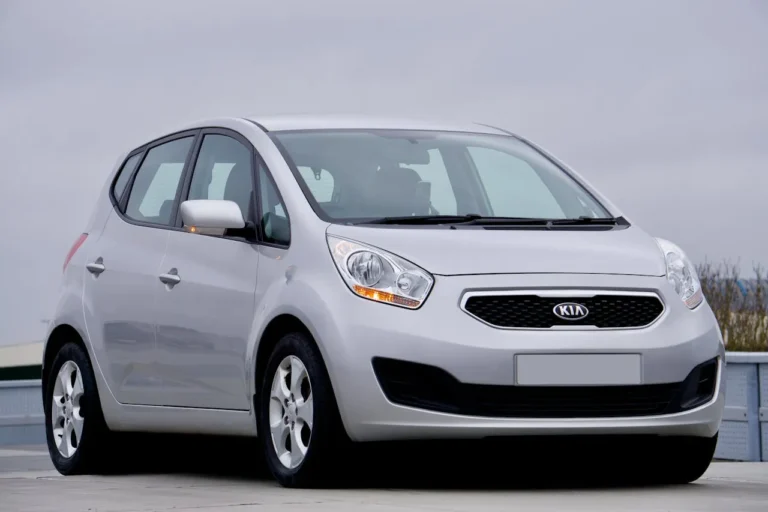
Bengaluru Launches Behavioural Science Initiative to Boost Metro Ridership
In a bold move to encourage sustainable urban mobility, the Bengaluru Metro Rail Corporation Limited (BMRCL), Bengaluru Metropolitan Transport Corporation (BMTC), and the Electronics City Industries Association (ELCIA), in partnership with the Toyota Mobility Foundation (TMF) and WRI India, have launched “STAMP: Nudging Commuter Behaviour.” This innovative initiative aims to harness behavioural science and advanced technology to influence commuter choices, nudging them away from personal vehicles and toward the city’s expanding public transport network.
Addressing the Urban Mobility Challenge
Bengaluru, a city renowned as India’s technology capital, faces growing traffic congestion and increasing emissions due to a heavy reliance on personal vehicles. To address these issues, the city has been expanding its metro infrastructure, with the upcoming launch of the Namma Metro Yellow Line later in 2025. This new metro corridor is expected to significantly improve connectivity for Electronic City—home to a major concentration of IT and industrial firms and one of the city’s largest employment hubs.
The addition of the Yellow Line is poised to bring over 100,000 jobs closer to the metro network, providing employees with a faster, more efficient, and environmentally friendly commute. However, even with this improved infrastructure, a key challenge remains: encouraging actual commuter adoption of public transport.
To support this shift, BMTC, in collaboration with ELCIA and the Electronics City Industrial Township Authority (ELCITA), has recently introduced a fleet of feeder buses. These buses provide crucial first- and last-mile connectivity, a longstanding barrier for many would-be metro users.
The Role of STAMP in Transforming Mobility
The Station Access and Mobility Program (STAMP), jointly led by TMF and WRI India, has been at the forefront of addressing such challenges in Indian cities since its launch in Bengaluru in 2017. Over the years, STAMP has expanded to six other urban centers—Hyderabad, Kochi, Mumbai, Pune, Nagpur, and Delhi—successfully enabling over 50,000 last-mile metro trips and saving more than 240,000 passenger minutes.
By combining in-depth research, local collaboration, and pilot programs ranging from electric autorickshaws to shared mobility apps, STAMP has demonstrated how data-driven innovations can bridge the gap between infrastructure and accessibility. Its four-step methodology identifies commuter behavior trends, uncovers system inefficiencies, and designs customized, city-specific solutions to address them.
The Behavioral Science Breakthrough
A 2023 working paper jointly published by TMF and WRI India, titled Improving Metro Access in India: Evidence from Three Cities, highlighted several important findings. One of the most striking revelations was that high-income commuters—those earning over ₹60,000 per month—tend to avoid metro services. These users, often referred to as “choice commuters,” prefer personal vehicles due to the inconvenience and high cost associated with last-mile connections.
Compared to cities like Nagpur and Delhi, Bengaluru presents higher barriers to metro access, particularly for affluent residents. These insights have positioned behavioral science as a critical lever to influence commuting decisions. By analyzing the motivations, perceptions, and habits of commuters, targeted interventions can encourage a voluntary shift toward public transit.
STAMP: Nudging Commuter Behaviour – A New Phase
The newly launched edition of STAMP, titled Nudging Commuter Behaviour, focuses specifically on high-income professionals working in Electronic City. Building on the learnings of previous city programs, this phase integrates behavioural insights into urban transport planning and solution design.
The core objective is to reduce the financial and psychological barriers to metro use by introducing technologies and communication strategies that “nudge” users towards adopting sustainable travel habits. This includes strategies such as real-time prompts, gamified reward systems, and improved design of commuting environments.
Ultimately, the initiative aims to cut emissions, relieve traffic congestion, and accelerate the transition to more sustainable commuting patterns in Bengaluru.
STAMP Innovation Challenge: Scaling Impact Through Collaboration
A centerpiece of this effort is the STAMP Innovation Challenge—an open call to startups, technology firms, and mobility solution providers to co-create scalable, impactful innovations. The challenge invites global innovators to submit proposals, provided they collaborate with Indian partners.
Spanning April to June 2025, the challenge focuses on four key themes:
- Gamification: Implementing rewards-based systems to incentivize green commuting decisions.
- Real-Time Nudges: Delivering contextual prompts to commuters during peak hours to promote shared rides and reduce congestion.
- Inclusive Access: Ensuring affordability, safety, and convenience for all user groups through behavior-driven design.
- First/Last Mile Solutions: Leveraging data to improve connectivity to and from metro stations.
Winning proposals will receive access to a collective implementation grant of USD 100,000 to develop and pilot their innovations. Finalists will also participate in a bootcamp hosted by Ashoka University’s Centre for Social and Behaviour Change, where they’ll gain valuable insights into the intersection of behavioral science and urban mobility.
Additional support for shortlisted teams includes:
- Enterprise Support: Business strategy, government engagement tools, and pilot design assistance.
- Expert Exposure: Opportunities to engage with transportation authorities, civic stakeholders, and academic researchers.
- Funding Access: Financial incentives to develop, test, and deploy pilot projects.
Further details regarding the application process, eligibility, and timelines are available on the STAMP: Nudging Commuter Behaviour website.
Multi-Stakeholder Support for a Shared Vision
This initiative is being implemented with strong backing from both public and private sector leaders:
Pras Ganesh, Executive Program Director of Toyota Mobility Foundation Asia, emphasized the importance of human-centered design:
“We initiated STAMP nearly a decade ago to promote greater metro adoption across India. Through behavioral science and integrated mobility, we aim to foster cultural shifts that make public transport a natural choice.”
Maheshwar Rao, IAS, Managing Director of BMRCL, highlighted the opportunity created by the new metro line:
“With the Yellow Line nearing completion, we can shift thousands of vehicles off the roads. We invite companies to support their employees in choosing public transport by developing innovative, tailored commuting solutions.”
GT Prabhakar Reddy, Chief Traffic Manager (Operations), BMTC, shared BMTC’s ongoing efforts:
“With over 6,800 buses and 61,000 daily trips, BMTC serves more than 4 million people. But building a better commute isn’t just about adding buses—it’s about making the experience safer, simpler, and more comfortable through smarter design and subtle nudges.”
A spokesperson for ELCIA reiterated the area’s readiness for innovation:
“Electronic City has always led from the front when it comes to innovation. Through STAMP, we’re aiming to make public transport more accessible, reduce congestion, and support a greener future for our employees and residents.”
Vikram Gulati, Country Head and Executive Vice President – Corporate Affairs and Governance at Toyota Kirloskar Motor, added:
“India’s transportation sector is a major contributor to emissions. Infrastructure alone won’t solve this. Behavioral change is key, and we’re proud to support this effort to foster widespread public transit adoption.”
Pawan Mulukutla, Executive Director – Integrated Transport, Clean Air & Hydrogen, WRI India, summed it up:
“To truly shift commuter behavior at scale, we must design seamless, user-centric systems. STAMP Nudge allows us to apply targeted solutions that align with how people actually make transport decisions.”
About the Toyota Mobility Foundation
Founded in August 2014 by Toyota Motor Corporation, the Toyota Mobility Foundation (TMF) aims to create a society where everyone can move freely and safely. By partnering with governments, research institutions, and non-profits, TMF develops inclusive mobility solutions aligned with the UN Sustainable Development Goals. Chair Akio Toyoda explains TMF’s mission simply:







